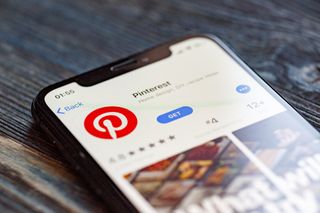Microsoft's interest in Pinterest falls flat
The tech giant is thought to be in the market for 'active online communities' to add to its cloud portfolio

Microsoft has reportedly been in talks to acquire the social media firm Pinterest in recent months, although the company has so far been unable to secure a deal.
It's the second time the tech giant has attempted to buy a large social media platform, with negotiations reportedly ending after Pinterest expressed a wish to remain independent, according to The Financial Times.
In the summer Microsoft also failed in a bid to take over Chinese video-sharing app TikTok, after the company was put up for sale to avoid a complete ban in the US. Microsoft ultimately lost out to Oracle and Walmart, though that deal is still yet to be completed.
Pinterest, however, is valued at around $51 billion (£36bn), which would not only have resulted in Microsoft's biggest acquisition ever, but also likely one of the largest tech acquisitions in history - potentially only behind Dell's $67 billion takeover of EMC in 2015. It would also have been the company's most notable acquisition since it bought LinkedIn for around $26 billion in 2016.
It's suggested that Microsoft is interested in amassing a portfolio of active online communities that can run on top of its Azure cloud platform, according to sources with knowledge of the deal, speaking to the Financial Times. Aside from LinkedIn, the other notable 'community' acquisitions in Microsoft's portfolio are GitHub and Minecraft.

Architecting hybrid IT and edge for digital advantage
Why business leaders should consider a hybrid IT strategy
Owning a company with large numbers of active users, many of which post frequently, can provide valuable data for a business like Microsoft. LinkedIn data, for example, is used to customise other Microsoft apps and services, such as Outlook, which can show shared LinkedIn connections with your email contacts.
What exact use Microsoft would have had with Pinterest data is unknown, but the firm is rapidly growing with 459 million active users. It is also worth noting that the social media site currently relies on Amazon Web Services (AWS) for its infrastructure.
Get the ITPro. daily newsletter
Receive our latest news, industry updates, featured resources and more. Sign up today to receive our FREE report on AI cyber crime & security - newly updated for 2024.
“In Pinterest and TikTok before it, Microsoft is clearly demonstrating that it wants to build up more consumer-facing assets within its flywheel of operations beyond hardware and its Xbox and PC businesses," argued Nick McQuire, chief of research for enterprise at CCS Insight, speaking to IT Pro.
"When compared to its cloud competitors, particularly its archrival next door, this is a glaring gap for Microsoft. This matters, but it’s less about increasing the diversity of its revenue in new areas like advertising, which through Bing, is not an insignificant business for Microsoft. It's about winning cloud customers, particularly in consumer-facing industries where the other clouds have bigger assets to bring to bear to win larger deals."
He added that this approach, the type of corporate style cloud deal between cloud providers and customers that involve a wider set of assets, is becoming increasingly common.
"Having an online B2C asset within its organisation not only helps it address sentiment that it’s just a sober enterprise play, but it also gives it more credibility with customers addressing the huge shifts in consumer behaviour and brand preferences as well," said McQuire.
Although Microsoft also failed in its bid for TikTok, Oracle and Walmart's deal has been put on hold pending a review by US President Biden over the previous administration's national security policies targeting Chinese firms.
Bobby Hellard is ITPro's Reviews Editor and has worked on CloudPro and ChannelPro since 2018. In his time at ITPro, Bobby has covered stories for all the major technology companies, such as Apple, Microsoft, Amazon and Facebook, and regularly attends industry-leading events such as AWS Re:Invent and Google Cloud Next.
Bobby mainly covers hardware reviews, but you will also recognize him as the face of many of our video reviews of laptops and smartphones.





